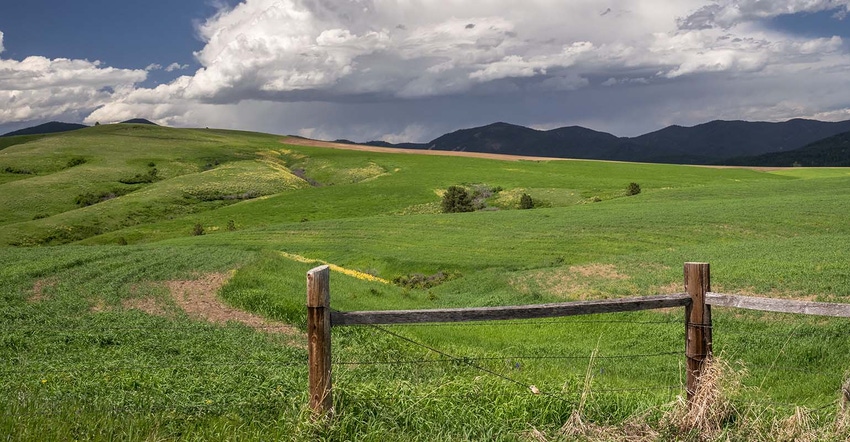
The Vegetation Management business within Bayer CropScience LP, announced this week a new product for controlling invasive weed species on rangeland, CRP land and natural areas, including grazed areas on these sites.
Rejuvra herbicide was approved by the EPA but is not yet available for sale. Bayer says the first sales of Rejuvra herbicide are anticipated in July 2020, following state registrations.
This product appears to be primarily useful in the West, where non-native annual grasses fuel repetitive wildfires and simplify the habitat.
Rejuvra is a pre-emergent herbicide and restoration tool that researchers said in the company’s webinar on Tuesday is showing consistent multi-year control of invasive annual grasses like cheatgrass-downy brome, medusahead and ventenata. At the same time it controls seed germination in the problem grasses, it allows native plants to regenerate.
With one application, Rejuvra helps control the seed bank for these problem grasses for several years. Research in the Great Basin showed four years of control. A single pre-emergent application of this product provides consistent multi-year control of invasive annual grasses, they said, and it should reduce costs associated with time and labor for management using other products, the researchers said.
Researchers in Colorado and elsewhere have shown controlling invasive annual grasses with this herbicide allows remnant desirable perennial grasses and forbs to recolonize treated areas at more numerous levels. Forage quantity and quality is improved and wildfire risk is reduced. Trial work across the western United States showed that areas treated with Rejuvra demonstrated a two-fold to three-fold increase in perennial grass biomass, compared with untreated areas.
The increases in forbs should be beneficial to pollinators and grassland birds, and those increases along with higher-quality forage and browse should help wildlife species such as deer, elk and pronghorn antelope, according to wildlife researchers and specialists in Colorado.
This product began life as Esplanade, a product designed for areas such as roadsides and powerline right-of-ways. Now, Rejuvra’s formulation and labeling allows it to be used on grazing lands and natural areas.
Bayer listed its documented benefits of using Rejuvra herbicide:
Provides multi-year control of invasive annual grasses, with seed bank depletion.
Releases and restores perennial native vegetation. Perennial plants respond quickly to the additional water and nutrients that become available when invasive annual grasses are controlled. This results in increased perennial biomass and forage production, and restored native plant communities.
Reduces wildfire risk by lowering fine fuels that feed wildfires.
Improves wildlife habitat by increasing quality of grass, forbs and shrubs beneficial to pollinators, birds and other wildlife.
It’s economical because fewer applications are needed to control weeds, saving time and labor. Multi-year weed control with a single application can provide a greater return on investment (ROI).
There are no grazing restrictions when used by label recommendations. However, the webinar offers suggestions for best results.
To learn more about this new product or to watch the recorded webinar go to www.rejuvra.com.
About the Author(s)
You May Also Like




